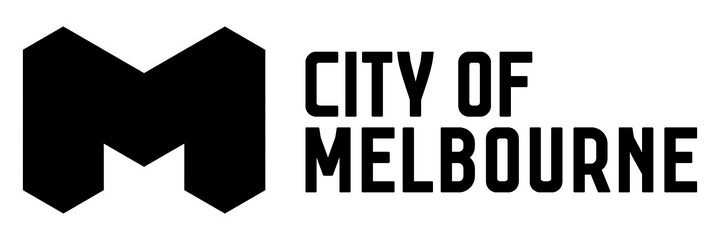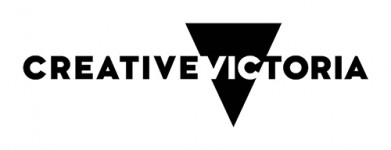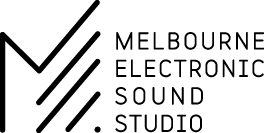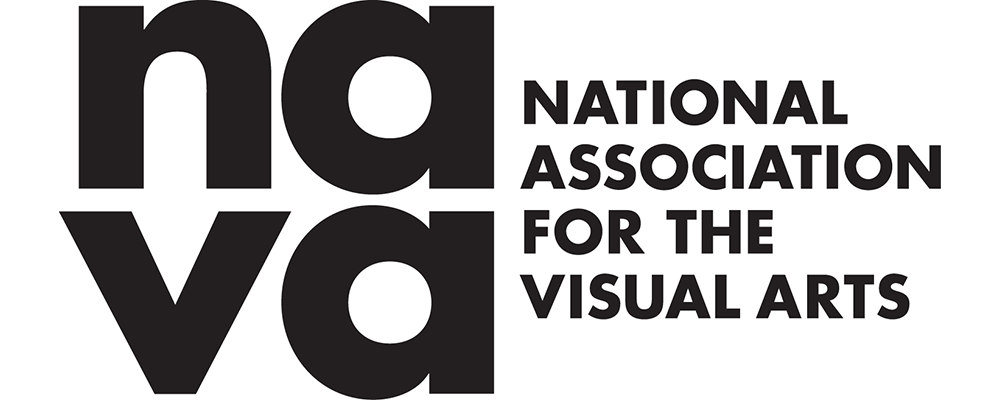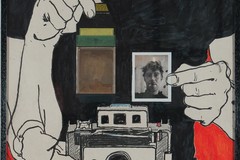Liquid Architecture (LA) is Australia’s leading organisation for artists working with sound and listening. LA is based on Wurundjeri Woi Wurrung Country, at the Collingwood Yards art precinct. Our program sits at the intersection of contemporary art and experimental music, expressed through a range of presentation, publishing, research and commissioning activities.
BACKGROUND
Born in the complex artistic climate of the late 1990s, LA is a millennial imagination of Australia’s vibrant experimental sound culture. Founded in 1999, over the following 15 years, under the direction of Nat Bates, LA grew from being a boutique local event into Australia’s leading festival of experimental, electronic, improvised and avant-garde music.
In 2014, the organisation pivoted with an injection of ideas and resources, and the appointment of Joel Stern and Danni Zuvela as the organisation’s artistic leadership. The duo dissolved the festival model in favour of something more open, unpredictable and experimental: a year-round, curatorial program of boundary-pushing public events, happenings and situations untethered to any one discipline, ideology or format.
Forever expanding and evolving to meet our horizons, the cultural institution we know today as Liquid Architecture is fuelled by the ideas and energies of our team and augmented by the expertise of our board and advisors.
Under the leadership of Kristi Monfries alongside Creative Producer Rohan Rebeiro, Creative Producer James Howard and Programs Coordinator Ronen Jafari, the new direction will expand on this legacy to build strong foundations and relationships with sound experimentations from First Nations, Diasporas, Asia and the Pacific.
Grounded locally but working globally, LA is a dedicated platform for artists engaged in experimental sound practice, sustained and energised through conversation and research, and realised in collaboration with people in our community and beyond.
We acknowledge the Wurundjeri Woi Wurrung as the Traditional Owners and sovereign custodians of the Country on which we practice. We extend our respects to their Elders past and present, and to all First Peoples.
Team
BOARD
DANNY BUTT (CHAIR) is Senior Lecturer in Interdisciplinary Practice at Victorian College of the Arts, University of Melbourne, where he is also Coordinator of Research for Design and Production. His book Artistic Research in the Future Academy was published by Intellect/University of Chicago Press in 2017, and he is on the Editorial Board of the Journal for Artistic Research and is co-convenor of the Asia Pacific Artistic Research Network. As a Certified Management Consultant (CMC) he worked for intergovernmental agencies such as United Nations Development Programme and ASEAN on new media and development and was editor of the book Internet Governance: Asia Pacific Perspectives (Elsevier/UNDP 2006). He works with the Auckland-based art collective Local Time. He moved from Gadigal country in Sydney to Port Chalmers / Koputai, Aotearoa New Zealand in 1993, performing improvised sound and releasing recordings through the 1990s with Peter Stapleton and Kim Pieters in the groups Rain and Flies Inside the Sun (with Brian Crook); with Michael Morley in the Tanaka-Nixon Meeting; and as Cobweb Iris.
REBECA SACCHERO (DEPUTY-CHAIR)
Rebeca Sacchero is a Producer with extensive experience across multiple Metro Melbourne Inner North Local Government Areas. Rebeca understands the local government context whilst also having relationships and experience in small to medium arts orgs. She has been working in the space of community engaged practice and is passionate about creating arts access for under-represented communities. She has a strong track record of successful projects with youth, the LGBTQIA+ community, CALD communities and seniors. She has worked across visual arts, performing arts and digital media, with a range of government and private stakeholders. These include major festivals, local and state Government, ARI’s, schools, community health orgs, and social enterprises. She completed a degree in Art History and Curatorship at Monash University in 2017 and in 2019 was selected for Leadership Victoria’s LGBTQIA+ Leadership program. She also runs her own community building electronic music events in which she has toured international artists, and is a DJ.
MARK NOLEN (TREASURER) is a Certified Practising Accountant with extensive experience in the creative industries sector. He is currently Management Accountant at ACMI, having previously worked in a similar role at Film Victoria. Along the way, he has helped countless singers, actors, and even clowns get their taxes in order – no laughing matter! When not crunching numbers, you can find Mark sitting back with a fine drop of Scotch whisky, soaking up some even finer tunes.
CLAIRE BREDENOORD (SECRETARY) is an education designer and creative producer with experience in non-profit arts organisations, higher education and start-ups. She has a background in socially engaged arts practice and publishing, most often working across disciplines to produce multimodal projects. Most recently, Claire has contributed to the launch of Industri Education, a live music education organisation aiming to provide pathways into industry, as the Operations and Education Lead. A notable achievement has been collaborating with live music industry stakeholders to design new courses in technical production. Claire holds a Juris Doctor and a Master of Arts and Community Practice. She aims to continue developing her diverse skill set and passion for relational community practice to contribute to First Nations peoples’ fight for justice.
MONICA LIM (MEMBER) is a Melbourne-based pianist and composer of classical contemporary and experimental music. Born in Malaysia and then migrating to Australia in her teens, Monica initially practiced as a Tax Consultant for Deloitte Touche Tohmatsu, before pursuing her own interests in business and the arts. She has produced work for theatre, contemporary dance, installations, and film, as well as solo and ensemble instrumental pieces. She is interested in new cross-disciplinary genres and forms as well as combinations of new technology with music. Monica is currently undertaking a PhD at the Faculty of Fine Arts and Music, University of Melbourne in interactive technology, AI and gesture-led composition. Monica is co-founder of Project Eleven, a philanthropic initiative which supports the contemporary arts and serves on the boards of the Melbourne Recital Centre, the Substation as well as the Member’s Council for Musica Viva.
NARETHA WILLIAMS (MEMBER) is an accomplished practitioner in the Australian creative industries sector. An established artist and music producer, she is a seasoned industry professional with extensive experience across a dynamic range of appointments. Naretha has worked with leading Australian companies and First Nations initiatives, flagship festivals and events, has toured internationally and won several awards. Credits include: St Kilda Festival, Bless Your Blak Arts Festival, Australasian World Music Expo, International Symposium on Electronic Art, Yirramboi First Nations Arts Festival, Science Gallery London, Chunky Move, Performance Space New York, The Melba Spiegeltent, Melbourne Town Hall Grand Organ, Sydney Myer Music Bowl, Sydney Dance Company, and Melbourne’s Flash Forward.
GAIL PRIEST (MEMBER) is a sound artist and writer based on Dharug and Gundungurra land (Katoomba, NSW). Her work spans soundtracks for dance, theatre and video, solo electro-acoustic performance as well sound installations for gallery contexts, both solo and in collaboration. She has performed her live compositions and exhibited sound installations nationally and internationally including in Japan, Hong Kong, Germany, France, Norway and the Netherlands. In 2015-16 she was awarded an Emerging & Experimental Arts Fellowship from the Australia Council. She has undertaken numerous radio commissions and releases music on her own label Metal Bitch Recordings as well as Flaming Pines, Endgame Records and room40. She curates events and exhibitions and writes fictively and factually about sound and media art, working for RealTime magazine for over 15 years. She has been on the board of Performance Space (2011-2014), and a peer assessor for the Australia Council. She has just completed a PhD in creative sound theory at UTS. www.gailpriest.net
DAVID CHESWORTH (MEMBER) is an artist and composer, known for his experimental, and at times minimalist music, who has worked with electronics, contemporary ensembles, film, theatre, and experimental opera. Together with Sonia Leber, David has created installation artworks using sound, video, architecture and public participation. Exhibitions include ‘56th Venice Biennale (2015), ‘19th Biennale of Sydney (2014), and Melbourne Now, National Gallery of Victoria, Melbourne (2013-14). Festivals featuring Chesworth’s music and sound works include Ars Electronica; Festival D’Automne de Paris; Bang on a Can Marathon, New York, Biennale of Sydney; Adelaide and Melbourne Festivals; and MONA FOMA. Early in his career he was co-founder of post-punk band Essendon Airport and for five years was coordinator of the Clifton Hill Community Music Centre, Melbourne. David is a Vice-Chancellor’s Postdoctoral Fellow at RMIT University, Melbourne, researching auditory archives.
STAFF
Kristi Monfries (CEO + Director)
Rohan Rebeiro (Senior Creative Producer)
Ronen Jafari (Programs Manager)
James Howard (Creative Producer: First Nations Programming)
Bianca Winataputri (Editor - Disclaimer)
LA ASSOCIATES
Laura McLean and Suvani Suri (Associate Curators - Capture All)
Helen Grogan (Associate Advisor - Liquid Archive)
INTERNS
Maresca Hidayat
Olivia Stephen
Jess Phillips
Contact
We welcome conversation, ideas and feedback at any time.
info@liquidarchitecture.org.au
TW, FB, IG, YT, MX, SC
Journal, Podcast
104/35 Johnston Street
Collingwood VIC 3066
AUSTRALIA
LIQUID ARCHITECTURE
SOUND INC
ABN 73128090237
ASN A0050679K
Privacy Statement
Liquid Architecture (LA) is committed to protecting the privacy and security of personal information obtained and stored about its audience or clientele, including users of this website.
We understand and appreciate that our audience or clientele and users of this website are concerned about their privacy and the confidentiality and security of any information that may be provided to us.
This policy applies when Liquid Architecture determines what information will be collected or disclosed, or how any information will be processed.
We take a broad understanding of what constitutes ‘personal information’. We understand ‘personal information’ to include any information relating to an identified or identifiable natural person. An identifiable natural person is one who can be identified, directly or indirectly, in particular by reference to an identifier such as a name, an identification number, location data, an online identifier or to one or more factors specific to the physical, physiological, genetic, mental, economic, cultural or social identity of that natural person.
Liquid Architecture is bound by the Australian Privacy Principles contained in the Commonwealth Privacy Act and is compliant with the Privacy Amendment (Enhancing Privacy Protection) Act 2012.
We may, from time to time, review and update this Privacy Policy to take account of new laws and technology, changes to Liquid Architecture’s operations and practices and to make sure it remains appropriate to the changing legal environment.
THE TYPES OF PERSONAL INFORMATION LA COLLECTS
The type of information Liquid Architecture collects and holds includes (but is not limited to) personal information, including sensitive information, about:
- Contact information including email address, phone number, names, gender, organisation, role.
- Connection information including linkages and referrals between people.
- Financial information including amounts paid to LA, donated to LA, or received by LA.
- When you visit our website, our server maintains an access log that includes the following information: the visitor’s IP address, the date and time of the visit to the site, the pages accessed and documents downloaded, the previous site visited, and the type of browser used.
- When you visit our website, cookies are stored on your device that provides information to Google Analytics to give us statistical information about our visitors.
HOW PERSONAL INFORMATION IS COLLECTED
LA collects personal information in a variety of different ways depending on the type of contact that is made with the organisation. We collect personal information both from individuals directly and from third parties.
- Subscribing to LA’s newsletter via the website, in-person or other means
- Visiting LA’s website
- Registering for LA’s programs of events (eg. performances, workshops, lectures)
- Purchasing a ticket for LA’s programs of events via a ticketing system
- Making an online enquiry
- Making an individual donation to LA
- Becoming a sponsor
- Submitting a proposal to LA
- Providing written feedback to LA
- Through agreements with programming partners to add addresses to our mailing lists
- Images of persons might be collected during documentation of an LA performance
- If you become a LA Associate, Volunteer or Board Member
LA may also collect personal information over the phone, in person or by electronic correspondence in order to undertake its regular administrative operations
WHY PERSONAL INFORMATION IS COLLECTED
LA collects personal information in order to service the needs of its staff, audience and partnerships. This information is only used with your consent. Your personal information may be retained and used for the following purposes:
- To communicate with staff, artists, associates, volunteers, or Board Members
- For communicating about upcoming programs and services offered by LA and its partners
- For documenting LA performances and events
- To communicate to LA audiences on behalf of other arts or government organisations offering information regarding their products
- For artistic program research and organisational continuous improvement purposes
All details are kept secure at all times and any individual may request their information is not used for direct marketing, research or any other purpose.
DISCLOSURE OF PERSONAL INFORMATION
LA will not sell, lend, disclose, or give personal information of its audience or clientele to external individuals or organisations without first obtaining the customer’s consent.
LA may, however, disclose your personal information or financial data (information exchanged in transactions relating to donations, ticket purchasing or any other product sold):
- To our insurer or legal advisors for the purpose of obtaining insurance coverage, obtaining professional advice, and managing risks.
- To our payment services providers or financial institutions. LA will share transaction data only to the extent necessary for processing, refunding, or dealing with queries about payments.
- In a situation where such disclosure is necessary for compliance with a legal obligation that LA is subject to, or in order to protect the vital interests of a person.
LA will not disclosure personal information to recipients in another jurisdiction unless that jurisdiction has a privacy regime at least as equally protective as Australia. LA will always ask for specific consent before disclosing personal information to a recipient in another jurisdiction.
PERSONAL INFORMATION ACCURACY
LA is committed to ensuring all personal information it collects is accurate, complete and up-to-date. However, the accuracy of this personal information to a large extent depends on the information provided by its clients. LA asks that all clients:
- Advise us if you become aware of any errors in your personal information.
- Advise of any changes in their personal details, such as address, email address and phone number.
YOUR RIGHTS
At any time, any person has the right:
- To know what personal information LA holds about them and how it has been used
- To correct or alter any personal information LA holds about them
- To have the personal information about them erased
- To withdraw consent for the collection, retention, disclosure, use or processing of personal information
- To make a request or inquiry, write to info@liquidarchitecture.org.au
WEBSITE
The LA website contains links to other sites. LA is not responsible for the privacy practices of other sites. LA encourages users when they leave the site to read the privacy statements of each and every web site that collects personal information. This privacy statement applies solely to the activities of LA.
GENERAL DATA PROTECTION REGULATION (GDPR)
LA operates occasional European artistic programming and partnerships, and complies with the data protection policies required by the European Union General Data Protection Regulation (the GDPR) since 25 May 2018.
OUR DATA SECURITY POLICY
LA takes steps to prevent the personal information it holds from misuse, loss, interference or unauthorised access.
LA will also destroy or de-identify personal information when it is no longer needed, or when requested.
ENQUIRIES
If you would like further information about the way Liquid Architecture manages the personal information it holds, please contact LA via info@liquidarchitecture.org.au.
Feedback & Complaints
Liquid Architecture (LA) is committed to respecting feedback and complaints and continually improving our processes. This policy is intended to ensure that we handle complaints fairly, efficiently and effectively. We encourage feedback as part of improving our audience experience and artistic programming.
You can provide feedback or make a complaint via email via email to info@liquidarchitecture.org.au.
HOW DOES LA HANDLE FEEDBACK AND COMPLAINTS?
Upon receiving feedback or a complaint, LA will acknowledge receipt of the feedback or complaint; and request further information if necessary and advise how the issue is likely to be resolved.
LA will not respond to feedback or complaints that violate State or Federal laws, or suggest that others do so; contain profane, violent, abusive, sexually explicit language or hate speech; or are bullying, harassing or disruptive in nature.
Where possible, complaints will be resolved at first contact with us. When appropriate we may offer an explanation or apology to the person making the complaint. Where this is not possible, we may decide to escalate the complaint to LA’s CEOs or Board. Where a person making a complaint is dissatisfied with the outcome of our review of their complaint, they may seek an external review of our decision.
We will take all reasonable steps to ensure that people making complaints are not adversely affected because a complaint has been made by them or on their behalf.
All complaints are confidential. We accept anonymous complaints if there is a compelling reason to do so and will carry out a confidential investigation of the issues raised where there is enough information provided.
HOW LONG WILL IT TAKE FOR MY COMPLAINT TO BE RESOLVED?
The time it takes to resolve a matter depends on the issues raised and any enquiries that need to be made. As a guide, LA aims to acknowledge written feedback and complaints within 1 business day of receipt (if an email address or phone number is provided); respond to all written feedback and complaints within 5 business days of receipt.
LA will consider the matter closed if you indicate that you are satisfied with the response, or LA does not hear from you within 10 business days after sending you its response.
WHAT IF I’M NOT HAPPY WITH THE RESPONSE?
If you are dissatisfied with LA’s response you are encouraged to contact LA to request an internal review. You should outline in writing why you are dissatisfied with the response; and the outcome you are seeking. LA will provide a further response within 10 business days of receiving this information.
If you are dissatisfied with the outcome of our review of their complaint, you may seek an external review of our decision (by the Australian Charities and Not-for-Profits Commission for example).
Australian Charities and
Not-for-Profits Commission
Advice team: 13 22 62
Online Form
TICKET REFUNDS AND EXCHANGES
LA may provide an exchange or refund of a ticket if problems arise before, during or after an event. LA encourages our audience to try to resolve problems as soon as possible after they arise so that we have the best opportunity to find a solution.
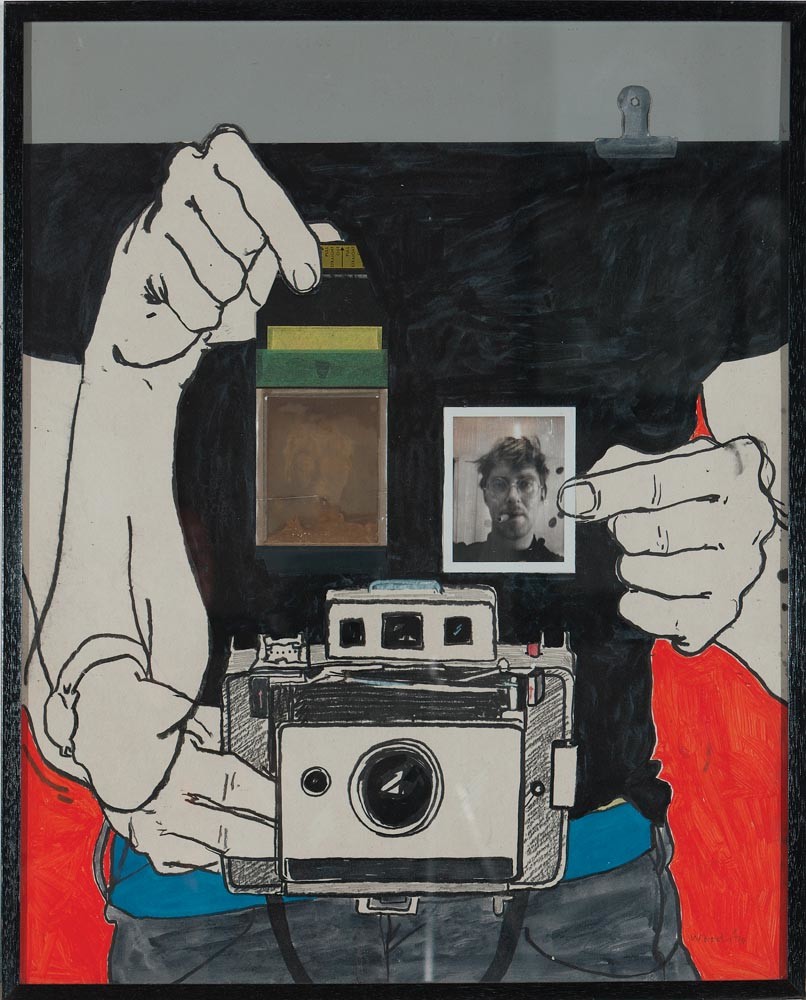
Sheridan Palmer: Disequilibrium - Presence/absence in the art of Tony Woods
As part of the ongoing lecture series, Histories and Theories of Sound, Discipline and Liquid Architecture present Dr Sheridan Palmer’s ‘Disequilibrium: Presence/absence in the art of Tony Woods’, followed by discussion with Doug Hall AM.
During the 1960s the Tasmanian artist TONY WOODS (1940–2017) emerged as a rare talent in the Australian art scene. An advocate of modernism’s pluralism, his bold figuration, vigorous abstract formalism, irregular shaped canvases that often incorporated collage and the readymade, was a synthesis of American mid twentieth century avant-garde, Pop and counter-cultural mysticism edged with existential angst. This diversity was not so much a contradiction but a fluid enquiry into ideas that informed his analysis of visual representation.
When Woods began exhibiting on the Australian mainland he acquired an impressive collector base that included the American millionaire Harold Merz, the modernist architect Robin Boyd, Bernard Smith, Lord Talbot of Malahide, with Joseph Burke and Albert Tucker as avid admirers. These connections partly explain Woods’s award of a Harkness Fellowship to New York in 1967 (the last given to an Australian artist) and a guarantee of a Power Institute Cité des Arts International studio in Paris; he also hosted the American art critic Clement Greenberg on his Hobart visit in 1968. To all appearances, Woods’s reputation and success was sealed.
In the final months of his Manhattan residency, however, fire gutted his studio and he lost everything; his American dream a palpable absence that left him in a state of disequilibrium. Returning to Australia Woods slowly recovered and went about re-establishing his career and, while his artistic production expanded into a rich body of paintings, drawings, prints, video and sound works, he lacked validation from the art system and gradually retreated into seclusion. In this lecture I consider problems of inclusion and exclusion and why a talented artist like Tony Woods became peripheral. Paradoxically, this ‘negative freedom’ enabled him to explore alternative mediums and concepts of ‘error’ as a positive projection and absence as a productive presence. As an artist Tony Woods was ‘a laboratory of approaches that lies outside of —or in vital opposition to — quotidian and bourgeois structures of value and meaning’, in which his visual aperture revealed the undisclosed rather than the obvious in both real and abstract terms. Despite the art critic Patrick McCaughey once rating Woods as ‘perpetually promising’, a new generation of young artists from the late 1990s onwards recognized his artistic integrity, his invigorating cultural knowledge and the value of Woods’s empirical enquiries that complemented postmodernity’s instability.
DR SHERIDAN PALMER
Sheridan Palmer is an art historian, curator and biographer, who has published extensively in art and literary journals. She has degrees from the Victorian College of Arts, La Trobe University and a PhD from the University of Melbourne where she is an Honorary Fellow. Sheridan has worked in painting conservation, as independent art dealer and has curated The Goddess Grins: Albert Tucker and the Female Image at Heide Museum of Modern Art in 2007 and The Lake Hindmarsh Project, 2010, for which she received an Arts Victoria Creation Grant. She was awarded the National Gallery of Victoria Trustees Prize for sculpture (1973) and Joseph Brown Prize for drawing (1976) and as an art historian has been awarded numerous grants, including a Paul Mellon Centre for Studies in British Art research grant in 2012, a Harold White Fellowship at National Library of Australia in 2010, a Sidney Myer Arts Grant, 2009 and a Manning Clark CAL Residential Fellowship in 2009. She was shortlisted for the Hazel Rowley Literary Fellowship in 2013 and the Australian Book Review Raft Fellowship in 2016.
Her books include Dean Bowen: Argy Bargy; Centre of the Periphery: Three European Art Historians in Melbourne, which is a major study of the establishment of art history in Australia, and Hegel’s Owl: The life of Bernard Smith, among others. She is currently researching post-war Australian modernism.
DOUG HALL AM
Doug Hall graduated from the Victorian College of the Arts and was director of two regional galleries before moving to Brisbane in 1987 where until 2007 he was director of the Queensland Art Gallery. Under his directorship the Queensland Art Gallery expanded its international focus and developed a strong engagement with Asia, especially through his initiative, the Asia-Pacific Triennial of Contemporary Art. He conceived the idea for the Gallery of Modern Art and oversaw its development. He was Commissioner at the 53rd and 54th Venice Biennale from 2009 to 2011, and was appointed Associate Professor and Honorary Fellow in the School of Culture and Communications, Faculty of Arts at the University of Melbourne.
Doug initiated, negotiated and curated many major exhibitions from within Australia and internationally and continues with academic and advisory roles in Australia and abroad. He has worked for cultural organisations including the Visual Arts Board of the Australia Council, as a member of the Australia International Cultural Council (Department of Foreign Affairs); and as a member of the Asia Art Council, Guggenheim Museum (New York), Executive Committee of the Australia-Thailand Institute, Australian Japan Foundation, Sherman Contemporary Art Foundation, Gertrude Contemporary and Chairman of the Michael Buxton Collection.
He is widely published in newspapers, magazines and journals and wrote art criticism for the Australian Financial Review. His forthcoming book will be published in 2019. Hall was awarded the University of Queensland’s Doctor of Philosophy honoris causa for his contribution to the visual arts in Queensland and in 2001 he was awarded a member of the Order of Australia. In 2006 he was made a Chevalier dans l‘Ordre des Arts et Lettres by the Republic of France.
This event is co-presented by Discipline and Liquid Architecture as part of the ongoing public lecture series ‘Histories and Theories of Sound’.Discipline is a publisher and contemporary art journal edited by Helen Hughes and David Homewood. Alongside artist pages and interviews, it publishes research essays about contemporary Australian art, and histories and theories of contemporary art as a global industry or phenomenon.
Partners


Supporters
